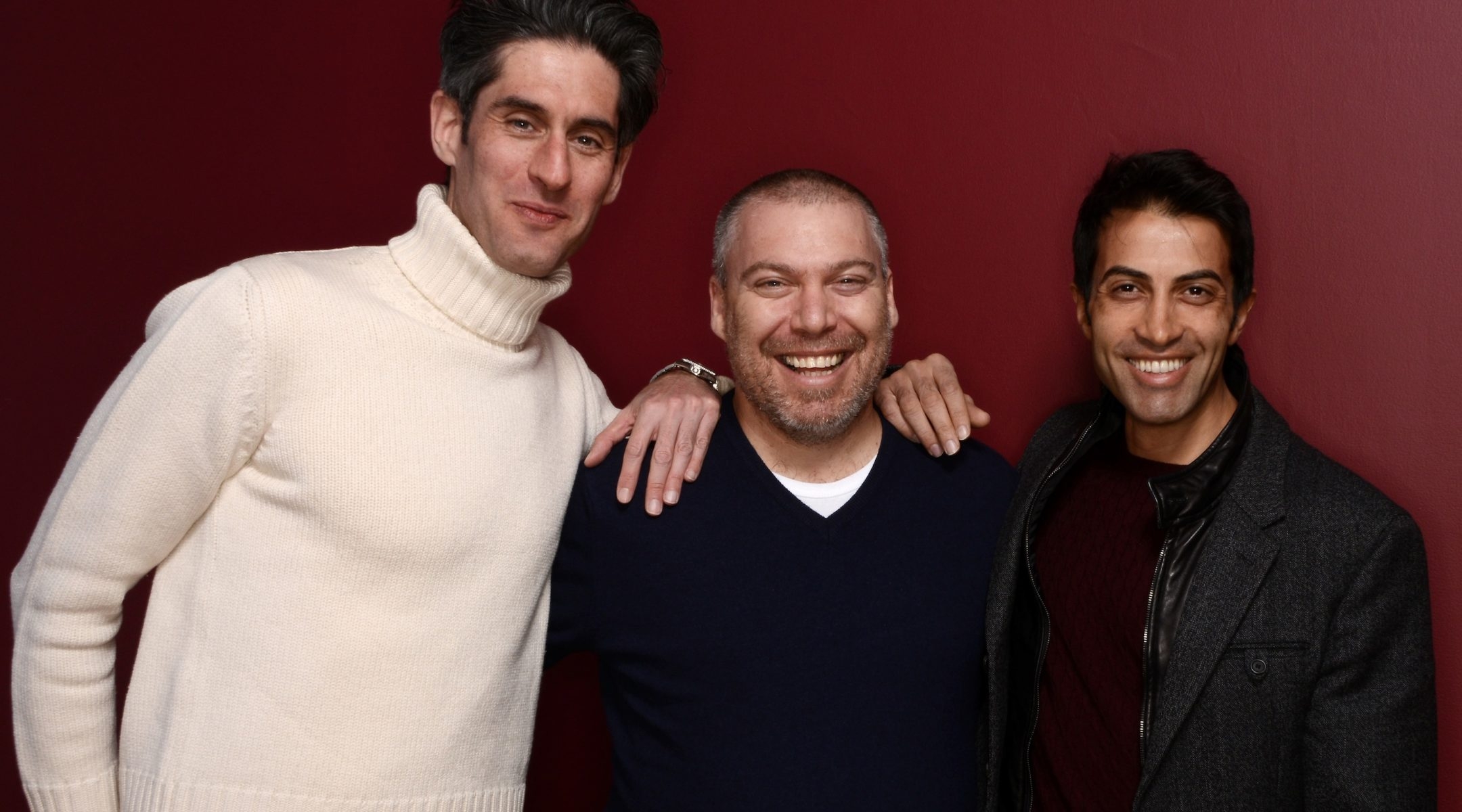PARK CITY, Utah (JTA) — Perhaps the most difficult thing about watching the new documentary “The Green Prince” is feeling that you should not be there, that everyone in the theater should be asked to leave before any more Israeli intelligence secrets are divulged.
When the Israeli newspaper Haaretz first broke the story in 2010 of how the son of Hamas leader Hassan Yousef spent a decade as Israel’s top informer in the West Bank, it warned that Israeli intelligence officials would not be happy to see so many of its secrets revealed: how it recruits and handles its Palestinian agents, how it managed to break the second intifada, and how it identified terrorist leaders so they could be arrested or assassinated.
The film version, which had its world premiere here this week at the Sundance Film Festival, is narrated by two voices: the Green Prince himself, Mosab Hassan Yousef, and his Shin Bet handler, Gonen ben Itzhak. Based on Yousef’s autobiography, “Son of Hamas,” the film tells the story of his odyssey from young militant to spy for Israel’s security service to Southern California asylum seeker fighting to avoid deportation back to the Middle East.
Yousef’s code name within the Shin Bet was derived from the green color of the Hamas flag and his near royal pedigree among Palestinians. Told through a combination of interviews, reenactments and archival footage, his story takes the viewer inside two worlds.
For Yousef, Hamas was “our family business.” His father spent more than a decade and a half in Israeli prisons for his leadership role in Hamas. Most recently, he was arrested in 2011 and released on Jan. 19, two days after the film premiered.
The younger Yousef was himself arrested at age 17, and not for the first time, for buying guns. It was during the months-long confinement that followed in Israel’s Megiddo prison that he came to understand Hamas’ brutality. Yousef decided he had been living a lie and agreed to become a spy for his sworn enemy.
For Yousef’s handler, turning the son of a Hamas founder was a career-making achievement. Ben Itzhak, the son of an Israeli army general, was inspired to join the Shin Bet following the assassination of Prime Minister Yitzhak Rabin. Yet all was not to end well for the agent.
Ben Itzhak grew close to his source and, from the Shin Bet’s perspective, betrayed the agency, trusting Yousef over his senior officers and breaking with procedure by meeting with him alone in the field and allowing him vacation time in Israel, including a rental car and a hotel.
From ben Itzhak’s perspective, it was all necessary to maintain the relationship and save Israeli lives. Haaretz reported that the pair had prevented dozens of planned attacks, including a plot to assassinate President Shimon Peres and former Chief Rabbi Ovadia Yosef.
“So many people owe him their life and don’t even know it,” ben Itzhak told Haaretz.
Eventually ben Itzhak was fired from the Shin Bet, but the bond between he and Yousef grew stronger. Yousef declined to work with subsequent handlers and had reached the breaking point after 10 years of living his underground life. He was allowed to relocate temporarily to San Diego under the guise of needing dental surgery.
The Israelis thought the break was temporary, but Yousef had other ideas. Once in the United States, he began a new life, joining a Christian church, writing a book and applying for political asylum. But his application was denied and U.S. authorities began proceedings to deport him as a terrorist.
In the end, only ben Itzhak was willing to attest to the veracity of Yousef’s claims, flying from Israel to San Diego for a decisive hearing in 2010. The gambit worked, thanks in part to a campaign that included letters from members of the Israeli Knesset and the U.S. House of Representatives. Yousef remains in Southern California to this day, disowned by his family but embraced by many new friends and supporters.
At a Q&A following one of the screenings, Yousef, ben Itzhak and the film’s director, Nadav Schirman, spoke of their partnership in making the film, referring to each other as close friends and brothers. For Schirman, aside from the cloak-and-dagger quality of the story and the revelations about both Hamas and Shin Bet, the heart of the film is the relationship that evolved between his two subjects.
“I found their connection so full of hope in the sense of ‘see what happens when people dare trust one another and go against preconceived notions?’ ” Schirman said. “The best of enemies become the best of friends.”
He adds, “Their humanity defies all the rules and breaks all the boundaries.”
JTA has documented Jewish history in real-time for over a century. Keep our journalism strong by joining us in supporting independent, award-winning reporting.






